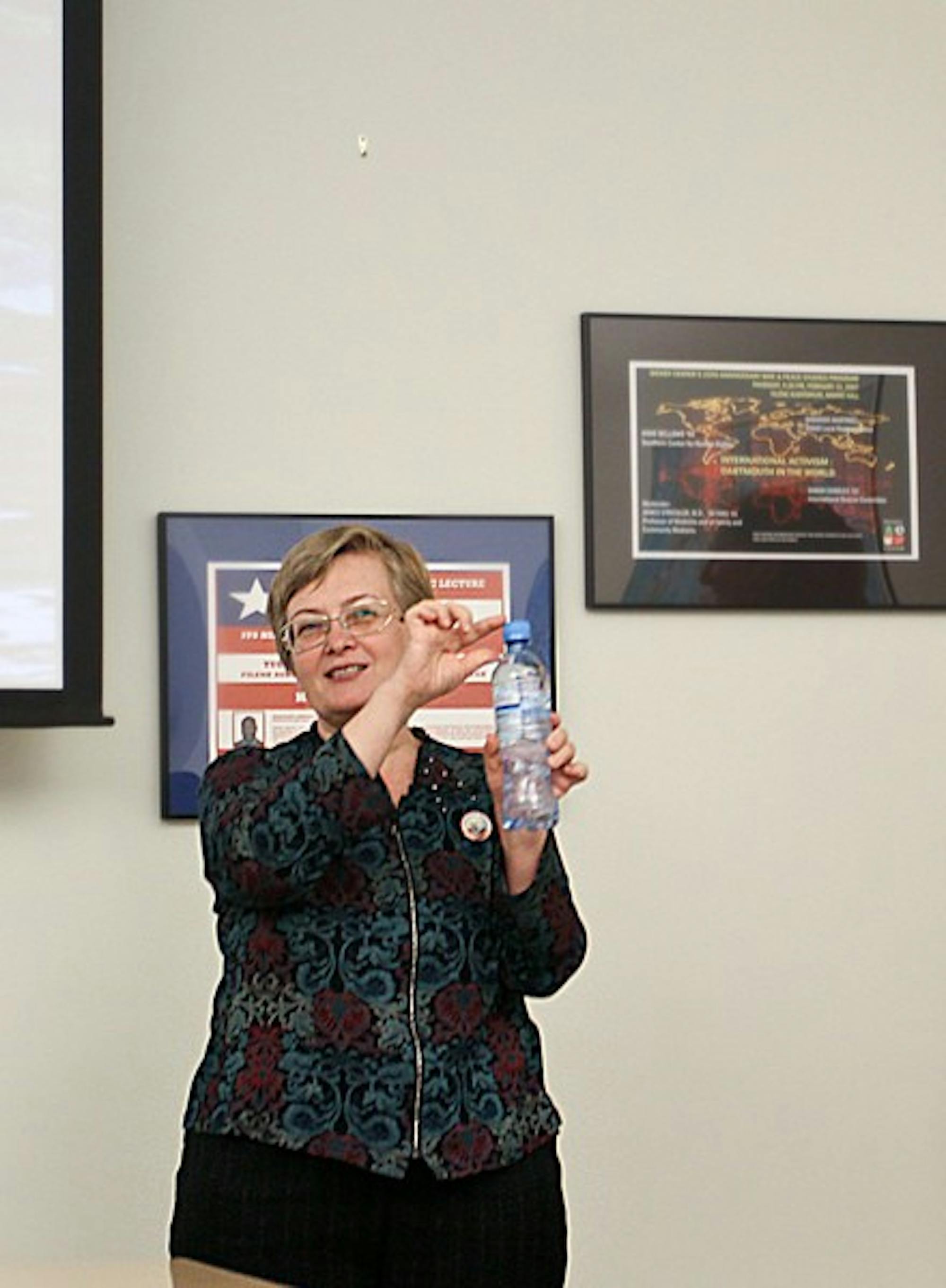The planned construction of a uranium enrichment center only 50 miles from Lake Baikal in Siberia poses an environmental threat to the world's oldest and deepest lake, according to Marina Rikhvanova, an internationally known environmental activist who co-founded the nonprofit Baikal Environmental Wave. Rikhvanova described her work to protect the lake, a UNESCO World Heritage Site, in her Friday lecture at the Haldeman Center.
The Russian government has proposed converting an existing nuclear plant into the world's first international uranium enrichment center, which would process nuclear waste imported from other countries. Russia is the only country to import nuclear waste, Rikhvanova said.
Rikhvanova's organization has advocated that the government halt construction plans until an independent environmental assessment is carried out. Construction on the plant has not yet begun, but the government is preparing documents to allow plans to move forward, Rikhvanova said in an interview with The Dartmouth.
"We would like to see international organizations contact their own governments to make sure they do not support shipments to the center once it opens," Rikhvanova said in the interview.
Leah Zimmerman, the Russia program director for Pacific Environment, San Francisco-based non-profit, translated Rikhvanova's remarks from Russian.
The plant is among several environmental hazards threatening the lake and its ecosystem, Rikhvanova said, citing the closure of the Baykalsk Pulp and Paper Mill located on the lake shore. Following the mill's sudden closure last year, six million cubic meters of waste remain on the shore in an area where earthquakes are common, Rikhvanova said.
"This is very dangerous because in the event of a major earthquake, the entire sludge pile could be dumped into Baikal," Rikhvanova said. "Our fear is that [the mill] will be sold to a new owner, and then the waste will be no one's responsibility."
Activists are also concerned about the potential reopening of the mill. Russian Prime Minister Vladimir Putin has said that he hopes the mill will re-open this fall, she said.
Siberia's mineral, oil and logging resources encourage industry detrimental to the lake, which contains 20 percent of the world's freshwater supply, Rikhvanova said. These companies are very closely linked to the Russian government, she said.
"You would think that since the government is involved, they would have to obey the law, but that's not the way it works in Russia," she said. "They have people in all the right places, filling out all the right paperwork, even paperwork allowing illegal activity. You would think we could challenge these things in the courts, but the courts are easily bought off."
Rikhvanova said the Russian company Transneft, with the government's cooperation, planned in 2005 to build an oil pipeline across Siberia that would run within a half mile of the lake. Environmental activists were concerned because of the potential for leaks.
Rikhvanova said her organization, Baikal Environmental Wave, galvanized public opposition to the plan, creating a "dramatic large-scale campaign with international support." The Russian government eventually decided to move the pipeline, she said.
Baikal's designation as a UNESCO World Heritage Site in 1996 was "very important," Rikhvanova said, because it acknowledges the national and international value of the region.
"Independent public environmental organizations need to be courted to do work to hold government companies accountable," Rikhvanova said in the interview. "It doesn't always mean going to court. It means simply drawing public attention to specific situations and problems."
The Russian environmental movement needs international support because Russian NGOs face worsening political conditions, Rikhvanova said in the interview.
Rikhvanova said the plight of Lake Baikal is particularly important because it is a Russian symbol.
"Baikal is also called the sacred sea," she said. "There are many songs and legends about Baikal. The lives of the people who live there are very connected to nature."




